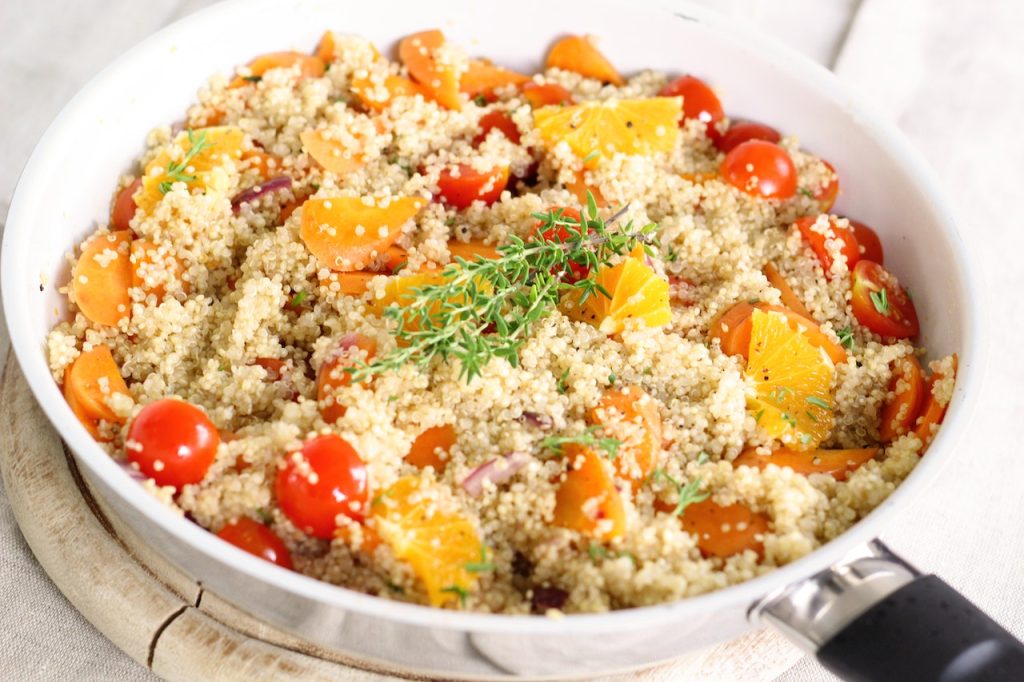The rise of plant-based diets is a trend that’s here to stay. More and more families are shifting away from traditional meat-centered meals and incorporating more fruits, vegetables, legumes, and grains into their diets.
For many, switching to a plant-based diet may seem daunting, but it’s quite simple. In this guide, Vikki Gerrard La Crosse WI will look over some tips and tricks on how to incorporate a plant-based diet into your family’s lifestyle.
Start Simple
The first step in incorporating a plant-based diet is to start simple. Begin by incorporating fruits and vegetables into your meals and swapping meat for plant-based protein alternatives such as lentils, chickpeas, tofu, or tempeh.
You can also try out different meat substitutes like plant-based burgers and sausages. Over time, start adding more variety of plant-based protein, grains, nuts, and seeds into your meals or snacks. Gradual changes are easier for the whole family to adjust, allowing taste buds to adapt.
Experiment With New Recipes
Switching to a plant-based diet means adding more variety to your meals, and one of the best ways to do so is by experimenting with new recipes. There are plenty of resources online, including blogs, websites, and cookbooks with hundreds of plant-based recipes that are easy to follow.
Make it a family activity and encourage everyone to choose a recipe they would like to try out and prepare it together.
Focus On Whole Foods
When transitioning to a plant-based diet, focusing on whole foods is essential. Whole foods include plant-based options such as fresh, frozen, and canned fruits and vegetables, whole-grain bread and pasta, nuts, seeds, and legumes.
Processed foods and snacks can be high in sodium and unhealthy fats while low in nutrients our body needs. Whole foods are rich in nutrients and offer better health benefits.
Focus On Nutrient-Rich Foods
Replacing the nutrients lost from avoiding animal products with nutrient-rich plant-based foods is essential. Plant-based diets have plenty of health benefits, including lower risks of obesity, diabetes, and heart disease.
Ensure your family consumes plenty of fresh fruits, vegetables, whole grains, legumes, nuts, seeds, and healthy fats such as avocado and olive oil. Include a variety of colorful fruits and vegetables to get all the necessary nutrients and keep meals interesting.
Make Substitutions
You don’t have to give up your favorite meals to switch to a plant-based diet. Most animal-based meals can be easily swapped with plant-based substitutes. Swap meat for plant-based proteins such as tofu, tempeh, lentils, chickpeas, and beans.
Replace cheese with plant-based cheeses and milk with plant-based milk such as almond, soy, or oat milk. Substitute eggs with flax or chia seeds or vegan egg replacers. You can transform your family’s favorite meals into plant-based dishes with a little creativity.
Get The Kids Involved
Getting your kids involved in choosing and cooking plant-based meals can cause them to be more interested in trying new foods. Involve them in grocery shopping and allow them to pick out fruits and vegetables they want to try.
Let them help with preparing meals and observe how the food is made. Educating your children about the health benefits and the impact of their food choices on the environment can motivate them to choose plant-based options.
Meal Prep And Plan
Meal prepping is becoming increasingly popular as it streamlines the preparation process of your weekly meals. It also ensures nutritious meals, preventing you from buying unhealthy fast food.
Prepare large batches of beans, grains, or soups and freeze them for later. This saves time and is very convenient for busy weekdays. Also, plan your meals for the week ahead to ensure that you have all the ingredients on hand and you don’t have to rush to the store mid-week.
Get Educated And Connected
One of the most important aspects of incorporating a plant-based diet is getting educated and connected to the community. Joining plant-based or vegan groups online on platforms like Facebook or Instagram or here on Reddit can help you stay motivated and provide you with the guidance or support you need from like-minded individuals while learning about plant-based diets.
Also, talk to your local farmers and community to learn where to purchase produce and products in your area. Connecting with people knowledgeable about veganism and plant-based diets will help you on your journey.
Final Thoughts
Switching to a plant-based diet can seem overwhelming, but it’s not. According to Vikki Gerrard La Crosse, the idea is to start small, concentrate on whole foods, and keep trying new recipes until you find the ones that suit you and your family’s taste buds.
Stay educated and connected to the community, and always remember why you started this healthy lifestyle change. Incorporating a plant-based diet into your family’s lifestyle can be enjoyable and exciting, leading to better health outcomes.

